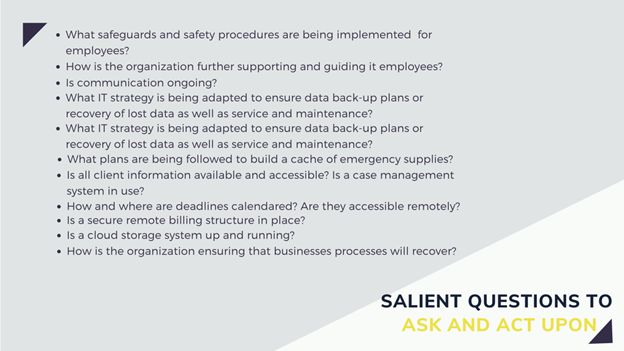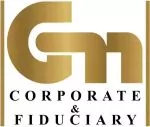Click here to connect with G M Corporate and Fiduciary Services on LinkedIn
As the world is reeling under the Covid-19 pandemic, working from home has gone mainstream. Service Providers are no exception and like all businesses are seeking to minimise the impact by finding ways to sustain their operations while safeguarding the health of their employees.
Essentially this means keeping a firm grip on the rudder when all of us are feeling rudderless.

Service providers need to prioritise their operational needs and sustain their regulatory work. Above all, it is crucial for them to put the message across that business continuation and disaster recovery still underlines their current and future reaching out to clients. Social distancing does not put clients on the back burner, though they too need to understand that business as usual is not possible in such a difficult situation.
Today's technology is proving invaluable in setting up work from home systems though a good number of employees including professionals across the board need guidance and support to adapt to their new work routines. VPN devices, high-speed internet lines to the organization, laptops and/or on-site servers to host user connections and availability to resources at the office are the starting points.
Teamwork, time reporting, management and productivity as anxiety levels peak are now posing unprecedented challenges for all businesses though legal firms are among the more prone since stress and unpredictability are already intrinsic to their normal routine. It is not enough to simply expect staff and clients to switch automatically to virtual mode for they need to feel cared for in a very tangible way –more so in time of crisis which also puts the spotlight on HR. If there is a time when HR must prove its mettle, this is certainly it.
Keeping up the flow of communication and counteracting spiking mental health stress are paramount. But for this to fall into place leadership qualities of integrity, honesty, competence, vision, inspiration and commitment are more crucial than ever before to reassure both staff and clients.
It is human nature for people to look up to their leaders in times of crisis because they need to feel soothed, encouraged, and supported. They also need to keep believing that they will make it through.
Openness and transparency instill trust meaning staff and clients need to be kept in the loop even of disturbing news and risks. Planning the way forward, pre-empting and anticipating change , identifying vulnerable points - all enable people to respond more positively to what the future holds while alleviating the toll of bleak headlines and the looming fear of job loss. Celebrating good news and sharing a joke also go miles in putting much needed smiles on peoples' faces.
In such an uncertain and volatile time, clients and staff appreciate decisive action in dealing with constantly unravelling scenarios. And this entails delegating tasks in a way that brings out leadership skills from other competent personnel. It also means acknowledging the significance of every contribution made by each member of staff. Inspiring employees to brace up and move on depends on authentic collaboration so that clients feel that they are still being served. Never have Richard Branson's words rung so true that if leaders take care of their staff, the staff will take care of clients in the best possible way. In other words, leaders need to walk the talk of nurturing a community spirit.
No one knows how long the pandemic is going to last. Nor have we yet any clear picture on how battered the economy will end up. Yet a Covid-19 hit world is showing that commitment to genuinely care for individuals, for families, for clients, for organisations and for communities is what ultimately counts to weather an unprecedented terrifying storm.
Leaders set the tone of their organisations. This is their chance to consolidate trust and loyalty which will continue to bear fruit long after life returns to normal. Actually, a new normal.
The content of this article is intended to provide a general guide to the subject matter. Specialist advice should be sought about your specific circumstances.

